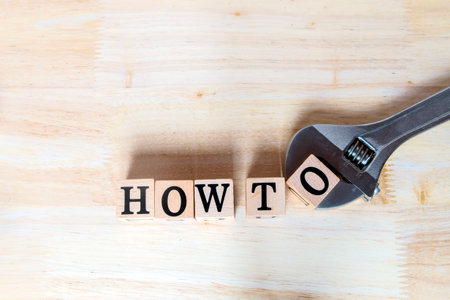1. Research Your Car’s Trade-In Value
Before heading to a dealership, it’s important to understand how much your car is worth. This helps you negotiate a fair trade-in value and prevents dealerships from lowballing your offer. One of the easiest ways to do this is by using online valuation tools.
Use Trusted Valuation Tools
There are several online resources that can provide an estimated trade-in value for your car based on its make, model, year, mileage, condition, and location. Here are some of the most popular tools:
| Valuation Tool | Features |
|---|---|
| Kelley Blue Book (KBB) | Provides trade-in ranges, market values, and private sale estimates |
| Edmunds | Includes price comparisons, dealer trade-in values, and condition-based pricing |
| NADA Guides | Used by many dealerships to determine trade-in values |
Compare Multiple Sources
Since different valuation tools may provide slightly different estimates, it’s a good idea to compare prices across multiple platforms. Take note of the highest and lowest values to get a realistic expectation of your car’s worth.
Factor in Your Car’s Condition
Valuation tools typically let you select your car’s condition (e.g., Excellent, Good, Fair, or Poor). Be honest about your car’s wear and tear, as dealers will assess it closely and may adjust the trade-in offer accordingly.
Get a Dealership Trade-In Quote
Some dealers offer online trade-in quotes based on your vehicle’s details. While these quotes give a rough estimate, the final offer will depend on an in-person inspection. Checking multiple dealership quotes can give you an advantage when negotiating.
By researching your car’s trade-in value ahead of time, you’ll be more prepared to negotiate a fair price and avoid being taken advantage of by dealerships.
2. Clean and Detail Your Car
A well-maintained and clean car makes a better impression and can increase the trade-in offer. First impressions matter, and dealerships are more likely to offer a higher trade-in value if your car looks well cared for. A dirty or cluttered vehicle can signal neglect, which may reduce the amount youre offered.
Why Cleaning Your Car Matters
When dealers assess your car, they consider both mechanical condition and appearance. A car that looks good gives the impression that it has been properly maintained, increasing the chances of a better offer. A professional detailing service can help, but you can also do plenty on your own.
Steps to Clean and Detail Your Car
1. Exterior Cleaning
- Wash the car thoroughly, removing dirt, grime, and water spots.
- Wax the exterior to give it a polished, shiny look.
- Clean the windows and mirrors to ensure a spotless finish.
2. Interior Cleaning
- Vacuum the seats, carpets, and floor mats.
- Wipe down the dashboard, console, and door panels.
- Remove any trash, personal items, and unnecessary clutter.
- Use a fabric or leather cleaner to refresh the seats.
3. Final Touches
- Check for lingering odors and use an air freshener if needed.
- Ensure the tires and rims are clean and free of brake dust.
- Replace any worn floor mats to improve appearance.
Professional Detailing vs. DIY
If you have time, detailing the car yourself can save money. However, if your car is particularly dirty or has stains and scratches, professional detailing might be worth the investment.
| Option | Cost | Time Required | Effectiveness |
|---|---|---|---|
| Professional Detailing | $100 – $300 | Few hours | High |
| DIY Cleaning | $20 – $50 (cleaning supplies) | Several hours | Moderate to High |
Final Checklist Before Trading In
- Make sure everything is spotless inside and out.
- Store service records and receipts in the glove compartment.
- Double-check for personal belongings before handing over the keys.
Taking the time to clean and detail your car properly can make a big difference in how much trade-in value you receive. Dealerships appreciate cars in great condition, and a little effort on your part can mean more money in your pocket.
![]()
3. Gather Important Documents
Having the right paperwork ready can make the trade-in process much smoother. Dealers will ask for specific documents, so gathering them in advance can save you time and help you get the best offer.
Key Documents to Prepare
Here are the essential documents you’ll need when trading in your car:
| Document | Why Its Important |
|---|---|
| Car Title | Proves that you own the vehicle and can legally transfer ownership. |
| Service Records | Shows that the car has been well-maintained, which can increase its value. |
| Loan Payoff Details | If you still owe money on the car, the dealer needs to know how much is left on the loan. |
| Vehicle Registration | Confirms that the car is legally registered and can be sold. |
| Owner’s Manual & Spare Keys | Having these available makes the car more attractive to buyers. |
Why These Documents Matter
Dealers appreciate an organized trade-in process. If you have all the necessary documents ready, they’re more likely to complete the deal quickly and may even offer you a better price. Missing paperwork can slow things down and reduce your bargaining power.
4. Get Multiple Trade-In Estimates
One of the best ways to maximize your cars trade-in value is to shop around and compare offers from different dealerships. Trade-in values can vary significantly depending on the dealer, their inventory, and current market demand. By collecting multiple estimates, you put yourself in a stronger position to negotiate the best deal.
Where to Get Trade-In Estimates
There are several ways to get trade-in estimates. You can visit dealerships in person or use online appraisal tools to gather offers conveniently.
Dealership Trade-In Offers
Most dealerships will provide a free trade-in estimate after inspecting your vehicle. Some may even give you an instant written offer. Visiting multiple dealerships allows you to compare offers and leverage them against each other.
Online Appraisal Tools
Many websites offer online appraisal tools to help you estimate your car’s trade-in value. Here are some popular options:
| Online Appraisal Tool | Features |
|---|---|
| Kelley Blue Book (KBB) | Provides instant cash offers based on market data |
| Edmunds | Offers trade-in estimates and dealer quotes |
| Carvana | Gives instant online trade-in offers |
| CarMax | Provides in-person and online appraisal options |
How to Effectively Compare and Negotiate
After gathering multiple trade-in offers, use them to your advantage during negotiations:
Bring Written Offers
Having a written offer from one dealer can be used as leverage when negotiating with another.
Highlight Competitive Quotes
If one dealer offers a lower price, mention higher quotes youve received elsewhere to encourage a better offer.
Be Willing to Walk Away
Dont settle for the first offer. If a dealer isnt willing to match a competitive offer, be prepared to go elsewhere.
5. Negotiate Strategically
When trading in your car, negotiation is key to getting the best value. Dealerships often try to bundle your trade-in with the price of your new car, which can make it harder to see the real value youre getting. Here’s how to negotiate effectively.
Separate the Trade-In Discussion
One of the best strategies is to negotiate your trade-in separately from your new car purchase. If you discuss both at the same time, the dealer may manipulate numbers to make their offer seem better than it actually is. Instead, ask for the trade-in appraisal first before talking about the new car price.
Steps to Keep Negotiations Separate
| Step | Action |
|---|---|
| 1 | Ask for your trade-in appraisal before mentioning a new car. |
| 2 | Get the trade-in value in writing to use as leverage. |
| 3 | Negotiate the selling price of your new car separately. |
| 4 | Only finalize the trade-in decision after agreeing on the new car price. |
Use Competing Offers
Take advantage of multiple trade-in offers. Get quotes from different dealerships, online appraisal services, and platforms like CarMax or Carvana. Use these offers as leverage to push for a higher trade-in value.
Where to Get Trade-In Offers
- Dealerships (multiple brands for comparisons)
- Online car buying services (Carvana, Vroom, CarMax)
- Local used car dealers
- Private sale estimates (even if you don’t plan to sell privately, it gives you a comparison value)
Be Prepared to Walk Away
If a dealer isn’t giving you a fair offer, don’t be afraid to walk away. Sometimes, showing that you have other options can encourage them to increase their offer. Having competing offers in hand gives you the upper hand in negotiations.


